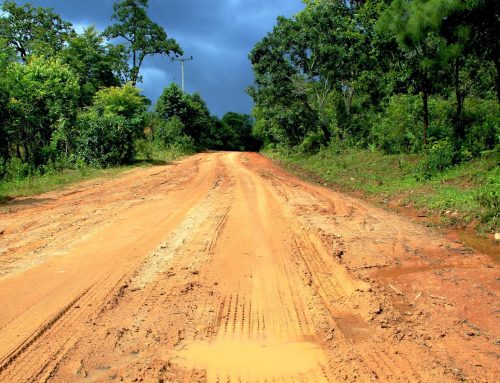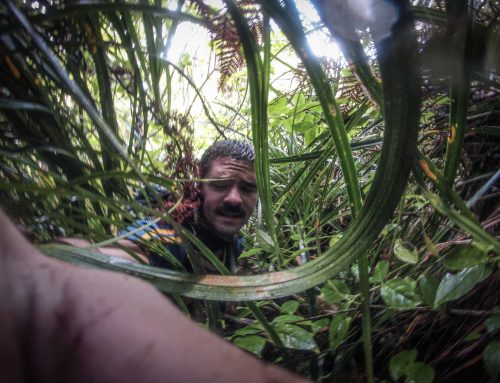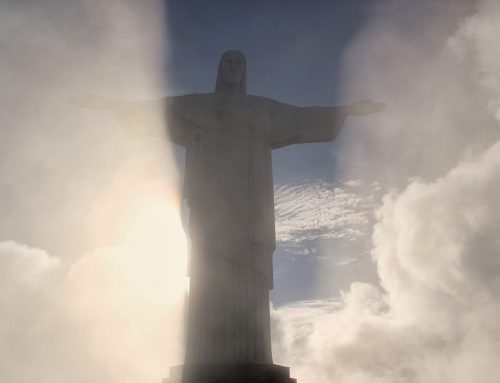[vc_row][vc_column width=”1/2″][vc_column_text]1 million. 1.5 million? Nobody knows exactly how many people densely live in Africa’s second largest slum. One reason is because the socio-economic structure in the slums is beyond our imagination. Just as much it is beyond isolated counting methods that we are used to in Western societies.
It’s called Kibera for a good reason. Coming from Nubian language, kibra means something like jungle. An urban jungle of tin huts, garbage and fear.[/vc_column_text][/vc_column][vc_column width=”1/2″][vc_single_image image=”23866″ img_size=”large” add_caption=”yes”][/vc_column][/vc_row][vc_row][vc_column][vc_custom_heading text=”Living conditions in Kibera slum” font_container=”tag:h2|text_align:left|color:%23000000″ use_theme_fonts=”yes”][vc_column_text]Often six family members sleep in a three by three meter hut. Without electricity, window and water. Outside, a hole in the ground serves as a toilet for up to 500 people. As soon as it is full, children bring its content to the river. But when it rains heavily, rivers of feces flow right through the huts. Most people live on USD $1 a day. If they get part time jobs. The unemployment rate is about 50-70 percent. This leads to the next problem. By getting rid of the boredom, Changaa is brewed cheaply, but incorrectly. That kind of brandy contains more than 50% of alcohol. Being rich in toxic methanol, many of them get blind or die. Others get cheap drugs or are sniffing some glue.[/vc_column_text][vc_column_text]This has a direct impact on women. 50% of the 16 to 25 year old girls become pregnant. Frequently caused by rape of drunk men. Desperate abortion attempts as a consequence often lead to death. In addition to catastrophic hygienic conditions, where malaria, typhoid and AIDS are being spread, also fraud, robbery and murder is part of daily life. As if that wouldn’t be enough, unreliable weather patterns in the Nilo-Saharan region triggered by climate change are leading to strong migration into the largest poor district of Nairobi. Although the UN and many NGOs have been involved for years, Kibera has a reputation for being one of the most dangerous and contaminated slums in all of Africa.[/vc_column_text][/vc_column][/vc_row][vc_row][vc_column][vc_single_image image=”23874″ img_size=”large” add_caption=”yes”][/vc_column][/vc_row][vc_row][vc_column][vc_custom_heading text=”Labels and prejudices” font_container=”tag:h2|text_align:left|color:%23000000″ use_theme_fonts=”yes”][vc_column_text]Dangers and diseases, drugs and criminals. The perfect template for labeling those people. Then, we no longer see what is really in front of us. Only what we think we see is in front of us. Dark images of it. Fractions of reality. Immovable. And we keep saying to ourselves: “Don’t go there!” Nothing can be as deceptive as your own knowledge.[/vc_column_text][vc_custom_heading text=”Dealing with the stranger” font_container=”tag:h2|text_align:left|color:%23000000″ use_theme_fonts=”yes”][vc_column_text]Xenophobia doesn’t always have to be racism. Our natural distinction between what is one’s own and what is foreign, between friend and enemy, is one of the basic behavioral patterns of all living creatures. Survival depends on it. When we ask for example someone at the train station whether they can take care of our luggage for a short time, we’d rather ask the old couple than the homeless bum. Those perception filters arise unconsciously. They can prevent us from the confrontation with the stranger. So if we know in advance about all these dangers, drugs, diseases and criminals in the Kibera slum, we’d rather accept that without further question. And stay away from the stranger. And continue to distinguish between: them, and us. Without even having exchanged own experiences and communication with people in a foreign space.[/vc_column_text][/vc_column][/vc_row][vc_row][vc_column width=”1/3″][vc_single_image image=”23882″ img_size=”large” add_caption=”yes”][/vc_column][vc_column width=”1/3″][vc_single_image image=”23856″ img_size=”large” add_caption=”yes”][/vc_column][vc_column width=”1/3″][vc_single_image image=”23864″ img_size=”large” add_caption=”yes”][/vc_column][/vc_row][vc_row][vc_column][vc_custom_heading text=”Departure to Kibera” font_container=”tag:h2|text_align:left|color:%23000000″ use_theme_fonts=”yes”][vc_column_text]At my hotel the receptionist tried to stop me. When I told her about walking alone into Kibera slum, she was dismayed: “Please don’t go!” I could be robbed, kidnapped, even killed. She said. Yesterday two of my friends in Nairobi also clearly had an opinion: “Too dangerous!” The 5km from Nairobi’s center to Kibera I walked by foot. I’ve come around enough to know that this area is “not safe”. But the question of security is often a self-deceptive debate. People often call for security while having a contradictory behavior.[/vc_column_text][vc_custom_heading text=”Frst steps” font_container=”tag:h2|text_align:left|color:%23000000″ use_theme_fonts=”yes”][vc_column_text]Two police officers were in front of the entrance. “Don’t you have a guide? Man, you know you’re white! Don’t go in there alone! Too dangerous for you.” In consultation with my mind and heart kindly I expressed my thanks and walked past them. Incidentally with a USD $1,000 camera around my neck. That I really loved. It’s the only valuable thing that I possess as a backpacker. I just thought that if I was really going to be robbed and it would have been stolen from me, most probably there was someone who needed it even more urgent than me. And I agreed to that risk.[/vc_column_text][vc_column_text]At first it was still a wide street. Many small stalls. Vegetables and charcoal were sold. In between goats and chickens. Then people stopped for a moment. And stared. Suddenly they recognized something white was moving through the street. And they identified: me. A muzungu. What in Bantu means something like: the white man who walks around without having a goal. Got me.[/vc_column_text][/vc_column][/vc_row][vc_row][vc_column width=”1/2″][vc_single_image image=”23868″ img_size=”large” add_caption=”yes”][/vc_column][vc_column width=”1/2″][vc_single_image image=”23858″ img_size=”large” add_caption=”yes”][/vc_column][/vc_row][vc_row][vc_column][vc_custom_heading text=”My ticket for admission” font_container=”tag:h2|text_align:left|color:%23000000″ use_theme_fonts=”yes”][vc_column_text]A young man carrying a heavy wheelbarrow came towards me. And looked at me for a long time. Then he sneered: “Do you wanna help?” Much laughter from the sides. But this was exactly my ticket for admission to the slum. “Sure,” I said, walking towards him. He didn’t expect that reaction coming. I took the wheelbarrow from him and almost fell on the ground. Loud laughter. And I laughed with them. One more try. This had to be around 100kg. Ok, let’s go. Up the hill. Done. After a hug we started talking. He worked for a social project here in Kibera.[/vc_column_text][vc_column_text]“You are brave to be alone here. People already calculate the price of your camera while you’re passing. Better take a guide.” I refused. “Then at least stay on this main road. You could be stabbed in the side alleys.” – “I’ve heard that so many times. Why is nobody doing it now? I believe that very nice and lovely people live here. And I want to meet them.” That left the young man speechless. His friend said: “Thank you.” We hugged each other. I went on. Someone shouted from behind: “Stay on the main street!”[/vc_column_text][/vc_column][/vc_row][vc_row][vc_column][vc_single_image image=”23886″ img_size=”large” add_caption=”yes”][/vc_column][/vc_row][vc_row][vc_column][vc_custom_heading text=”Life in the slum alleys” font_container=”tag:h2|text_align:left|color:%23000000″ use_theme_fonts=”yes”][vc_column_text]Just a little later I turned right. One jump over a small river of feces and plastic. Biting smell. And now I was inside. Had enough of the advice. Cultural exchange can only happen at a current crossing point. I’m tired of permanent distinctions between “them” and “me”. I wanted to try to harmonize my social interactions here. I looked around. The small alley was empty. The better walls were built from mud. Sometimes just loose sheets of cardboard served as a hut wall. And then I heard the first words in that alley…[/vc_column_text][vc_custom_heading text=”Thank you as a form of greeting” font_container=”tag:h2|text_align:left|color:%23000000″ use_theme_fonts=”yes”][vc_column_text]“Thank you.” Strange. I didn’t see anyone. A little further at the next hut again I hear: “Thank you.” Then a child came out. Another one. Three. Five. And already I was surrounded by small curious children with the most beautiful smile you can imagine. Adults came out a little later. They no longer stared. They just smiled. The fact that they first said “thank you” instead of a “hello” initially confused me a lot. So just by intuition I also greeted back by replying “thank you”. Only much later someone informed me that it just made them very happy that a white man dared to come here. Without a guide, without a team, without police protection. Simply by trusting.[/vc_column_text][/vc_column][/vc_row][vc_row][vc_column width=”1/2″][vc_single_image image=”23878″ img_size=”large” add_caption=”yes”][/vc_column][vc_column width=”1/2″][vc_single_image image=”23890″ img_size=”large” add_caption=”yes”][/vc_column][/vc_row][vc_row][vc_column][vc_custom_heading text=”Mama Githeri” font_container=”tag:h2|text_align:left|color:%23000000″ use_theme_fonts=”yes”][vc_column_text]After a while I saw a man preparing food. “Please come, my wife cooked. Taste it.” I took a small bowl from his githeri. This is a mix of water, corn and beans. No salt. I wanted to give him a few shillings for it. But to my surprise the man refused. I couldn’t believe that. I mean, here. Where money is needed most urgently, he just renounced from it.[/vc_column_text][vc_column_text]A little later I turned around the corner and got into in a new alley. By the way, still surrounded by a dozen of children. Suddenly a woman in front of a huge cooking pot waved to me. And the children immediately screamed: Mama Githeri, Mama Githeri! No way out, I have to taste her dish, she said with a confident look at me. Of course it was Githeri. Hence the name. I wasn’t hungry at all. But refusing would have been rude. “Actually I just ate. But I’ll take a spoon or two.” – “One or two spoons?” She asked in horror. “Look at how big you are!” And I already got a full plate in my hands.[/vc_column_text][/vc_column][/vc_row][vc_row][vc_column width=”1/2″][vc_single_image image=”23898″ img_size=”large” add_caption=”yes”][/vc_column][vc_column width=”1/2″][vc_single_image image=”23894″ img_size=”large” add_caption=”yes”][/vc_column][/vc_row][vc_row][vc_column][vc_custom_heading text=”Children’s wealth” font_container=”tag:h2|text_align:left|color:%23000000″ use_theme_fonts=”yes”][vc_column_text]Still I could perceive a “thank you” and “hello” coming out of the huts. I could hardly believe how incredibly welcoming people treated me here. A man opened his front door and invited me to his home. Once again I was speechless. Five square meters of living space, that he shared with his wife and three children. But something already pulled me at the back of my shirt. It were the playful children. They jumped, danced and laughed around me.[/vc_column_text][vc_column_text]Sometimes five, sometimes 30 were surrounding me. Pure joy. Either they wanted to climb up on me. Then I walked around with three children for a while. Or they marvel at my camera. It fascinated them. Then they were looking joyfully through the lens with their big eyes. All of them wanted to be on every single photo. Huge fun. Once when I looked at the photos and sat down, a child pulled my hair out of curiosity. Another girl pulled my ears with her mouth open. And then they laughed out loud. So lovely.[/vc_column_text][vc_custom_heading text=”A drop of Coca Cola” font_container=”tag:h2|text_align:left|color:%23000000″ use_theme_fonts=”yes”][vc_column_text]After 1 hour I took a break and sat down in front of a hut. I still had an apple in the right slot of my camera bag. In my left was a squeezed can of Coca Cola that I drank on my way to Kibera. A little boy sat next to me and observed every move. Around 5 years. Then he pointed to my can. “I’m sorry. The can is empty.” But the little boy pointed to it again. He really wanted to get this crushed can. So I gave it to him. He took it. And looked at it. Then he put up the crushed can to his lips and with his tongue he tried to get out the last drops of Coke. I couldn’t help it. I had tears in my eyes.[/vc_column_text][vc_column_text]Especially when he started to have a huge smile on his face after his fight with the drop of cola he had won. I took out my apple. I wanted to give it to him now. But suddenly someone behind me took the apple away from the boy’s hands. Immediately I turned around. That was his mother. She just smiled and said: “We are sharing everything here.” So she took a knife and cut the apple into 20 small pieces. Then she called the other children. Now each of the children could taste it.[/vc_column_text][/vc_column][/vc_row][vc_row][vc_column][vc_single_image image=”23880″ img_size=”large” add_caption=”yes”][/vc_column][/vc_row][vc_row][vc_column][vc_custom_heading text=”The pub” font_container=”tag:h2|text_align:left|color:%23000000″ use_theme_fonts=”yes”][vc_column_text]Three children pulled me then. I should come. A slum tour. Without any goal we walked through a labyrinth of mud huts. Climbed over walls and jumped over the stinking rivers, where mosquitoes laid their eggs and malaria is rampant. In a back yard I saw huge sacks of plastic and metal that the children carried together. A man told me that if you collect 20kg after a few weeks, you can sell it. There’s 1,600 shillings for that. About USD $15. That get’s shared again with several families.[/vc_column_text][vc_column_text]Someone grabbed me by my shoulder. “Come with me!” He wanted to show me the local pub. A little larger hut with furniture and a bigger table. A half-empty bottle of brandy was on the table. That must be Changaa. The five men were drunk and already had wide pupils. But it was a pleasant atmosphere. One sentence from them I remembered forever: “You know, you are very lucky to have been born in a country like yours. Look at us. We are not bad people just because we have no jobs, are black or poor. God is also present here. Every day.”[/vc_column_text][/vc_column][/vc_row][vc_row][vc_column width=”1/2″][vc_single_image image=”23902″ img_size=”large” add_caption=”yes”][/vc_column][vc_column width=”1/2″][vc_single_image image=”23908″ img_size=”large” add_caption=”yes”][/vc_column][/vc_row][vc_row][vc_column][vc_custom_heading text=”Armed with love” font_container=”tag:h2|text_align:left|color:%23000000″ use_theme_fonts=”yes”][vc_column_text]Famine, malaria, meningitis, cholera and typhoid are everywhere. I could see at a child’s fingernails that it had polio. According to authorities, there are 50,000 AIDS cases. This is just the official number. Despite life-threatening conditions every day and hardly any perspectives for a better future, the richness of these people is incomparably striking. From the small ones to the big ones. I never faced such a bright smile anywhere else in the world. When I returned to my hotel in the evening, the receptionist asked me: “Oh, fortunately you are back. How was it?” – “Well, I had an armada of 30 children behind me and I was armed with a very delicious apple. “[/vc_column_text][/vc_column][/vc_row][vc_row][vc_column][vc_single_image image=”23896″ img_size=”large” add_caption=”yes”][/vc_column][/vc_row]




Leave A Comment